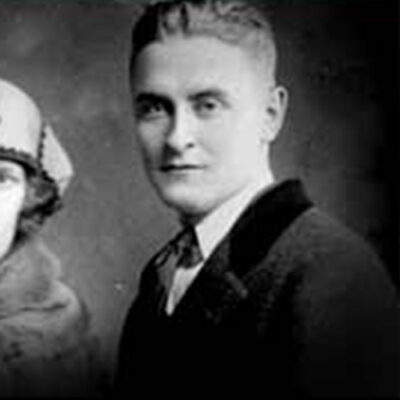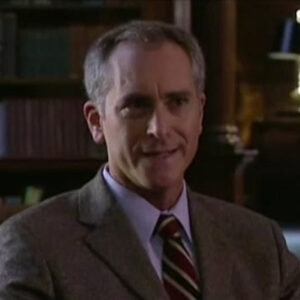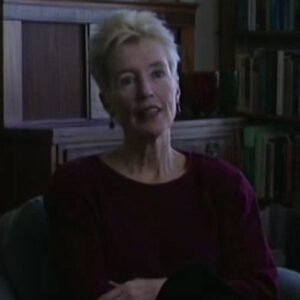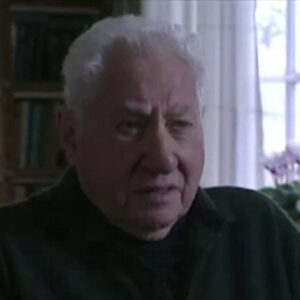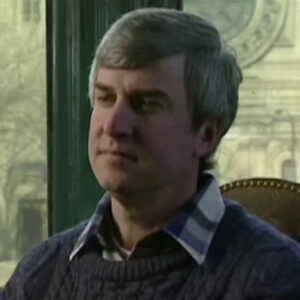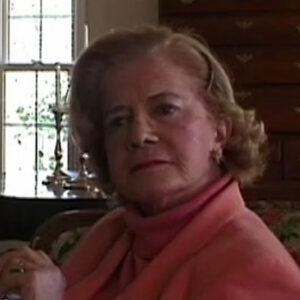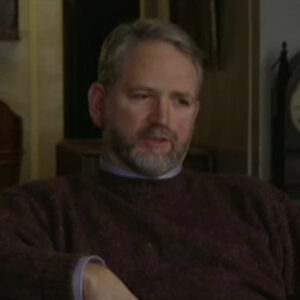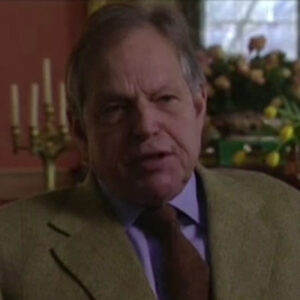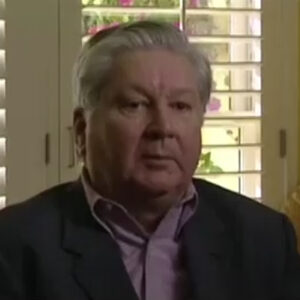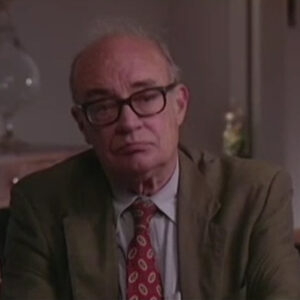Speaker I learned from you that, Scott. What kind of a show off that he was attracted to the lights, that he just instinctively needed to be on center stage and I guess the light center stage, a place for a show off to some degree, that part of his character was the East, but I didn’t really know that about his character. Would you? What was that about? Was he was Scott retiring and shy or when he walked in the room, were you immediately aware if he was sober, that this was a man with hardly as children and we were all children then we hardly ever saw him sober?
Speaker I mean I mean drunk. We hardly ever saw him drunk. He always seemed sober to us. I remember our father being very disapproving of and because he was such a drunkard and he thought he was going to be a very bad influence on us and I want him out of the place but is safe for us.
Speaker We just found him magic.
Speaker And what was using Scott or Mr. Fitzgerald or whatever name you want would be great to help me with that as much as you can. What what is Lepke to those of us who don’t know what pay is? What was this world? He was coming into this he Scott Fitzgerald and Zelda and their daughter Scottie.
Speaker Well, it was it was a big country place. Let me get my.
Speaker And can you use the name of lower pay?
Speaker Lower pay. Lower pay was a big country place and named after my grandparents summer house that was built in 1880 or something.
Speaker And we just used that name for the whole oh, the whole grounds. Our house, you know, all the grounds surrounding it was called Lappe.
Speaker And what happened one day, again, just defining the place a little for us, what happened, who drove in one day?
Speaker Well, and what happened? F. F. Scott Fitzgerald descended upon that pay. A like a star is like a fallen star. And those slumbering grounds began to vibrate with his very presence and a spark struck off everyone. Everyone, almost everyone who lived there.
Speaker And where were you how did you behold this apparition using his name, if you could?
Speaker Well, my parents were practically I mean, this this once famous author was practically unknown to my parents, especially since my mother was a passionate reader. But you see, the whole jazz era, the whole jazz age of the 20s had completely passed us by, totally unnoticed.
Speaker He.
Speaker It was a May, it was May in an early afternoon of 1932 when Fitzgerald was to arrive. He had come to rent my grandfather’s my grandparents summer house, which lay quite a distance from ours, although we could clearly see it. And I was down there waiting, hiding behind this big oak tree, hoping to catch a glimpse of him. Oh, I had just come from the Calvert School rehearsal of Alice in Wonderland, where I was cast as the most humble member. A minor member of the Oyster crew and I was dressed in a decidedly homemade costume, the worst in the whole class. It was a ish grey sateen, a very hungry sheath that clearly outlined my the size of a sizable middle. But in retrospect, I suppose I made a scrumptious oyster. I just turned nine years old.
Speaker I was a plane retiring, lonely little girl.
Speaker And I remember the shame, the shame of of this protruding middle must must have filtered through to this humble character I was representing. And while I was waiting. Suddenly, suddenly, I heard this roar of cars on our. Country, peaceful, long dirt driveway, a very, very rare sound on that on that dirt driveway. And the cars rolled up to the front steps of LA pay. And I was peering around the tree a praying I’d be invisible, of course.
Speaker And from the final car.
Speaker This dazzling man stepped out, it had to be him, just had to be him.
Speaker I was shocked, I didn’t realize that such a human being existed in our world, at least my world, the movies. Sure. And. Of course, he spotted me right away, and with his avid curiosity, he came straight up to me, oh, my heart was pounding, so and he said, Who who are how are you? I could just merely murmur. Alright, alright, oyster.
Speaker He gave me.
Speaker That tight, tender smile I was to grow so accustomed to. And he said, oh, I Sternau will be seeing you very soon.
Speaker Then.
Speaker He kind of put me at my ease by calling over his shoulder.
Speaker Hey, Mr.. And you can call me Mr. Fitz. You know, after almost 70 years.
Speaker I can. I can clearly remember that.
Speaker Those first fresh moments with him.
Speaker And there was an aroma there was an air of about this man in addition to his looks, but thank you, this was a place.
Speaker But but that was just my first impression of him. That was later on when I used to go down to the house all the time. He only stayed at my pay for a year and a half.
Speaker And I think he.
Speaker He had a warm feeling for pay. In spite of all of his his different morals, values. I think he he felt warmly about our our old fashioned values.
Speaker And it’s the beauty of the place. Solitude. Is peace, he needed that the most, he needed peace more than anything.
Speaker While he was living there, he lived through a terrible time that he was surrounded by these insurmountable problems, personal problems, and he was frantically trying to finish his next book, which had been working on for six or seven years and had made many, many attempts at. And yet, through it all. He was the most fascinating person for a child to be with.
Speaker They treat us almost as equals. It was a great, great privilege.
Speaker No one knows this, really, except, you know, I know it. But I’d love you to explain. I had this need to improve.
Speaker That’s sort of the outcasts of the world. Well, I wasn’t I wasn’t an outcast, I was the underdog of the family. I saw that right away. Someone who was insecure or someone who needed to be built up. My brother, who, who, who who was far brighter than I was and who was always teasing me frightful and causing me to cry all the time. And I, I just I just wasn’t appreciated by the family. My sister was always the perfect girl causing my problems. My mother. No, no problems and. I think he felt a bond with me. He he he felt that he wanted to help me. He wanted to help me to to to have more of a feeling of myself. And in the evening, we were down there a great many evenings. I don’t know how I could stand it. And he always used to be often I used to come in in his silk bathrobe, pajamas, his bedroom slippers, nothing else, a cigarette dangling from his neck or stained fingers. And. He had this most. Oh, it was seductive, this this warm, woodsy. Mellow smell, of course, it was gin and cigarettes, but I’ve never smelled that smell before, I found that most exhilarating. And he’d write these little plays for us. And I was always a centerpiece, I was always a heroine and there was always a villain, and Scotty was kind of, you know, the in-between, the kind of unimportant act his beloved daughter, Scotty.
Speaker The light always shown on me. That’s how he built me up.
Speaker He gave me a feeling, you know, that that I had something the others didn’t have. That that maybe I could act.
Speaker Hmm. And many believe that. And he called you what is a fresh start?
Speaker Oh, yes, yes, and he said, you don’t have it. Oh no, no. He said, I don’t have any I’m not you’re not pretty. You’re not pretty like Scotty. People are drawn to you. You’re not half as smart as your brother, who is a real a real snake charmer. He said, but you have something they don’t have.
Speaker You can act.
Speaker Remember that?
Speaker And then then he threw me a book.
Speaker And he called me Elanora Dusa. And he told me that all the time after that. Eleanor Doozer.
Speaker And your acting career, she was a great actress. She was a great actress. But maybe, what?
Speaker Seventy five years ago and I vaguely heard of her.
Speaker A great actress, off stage, silent stage stage.
Speaker There weren’t any movies in those days, there weren’t any films. Could you say for me, she was a great stage actress and great a great stage actress known all over the civilized world. Eleanor, I do, though, I mean, haven’t you ever heard of her?
Speaker Not to you told me you never heard of her.
Speaker Everyone else had I mean, there was Sarah Bernhardt, but Eleanor Doozer was the first actress who was out and in an introduction by a teacher who was able to get that inner Stanislavsky, that that modern method that Marlon Brando was so big in the movies with. She did it all on herself. She did all by herself.
Speaker What were the trials and tribulations? Family and the novel Tender is the night that were pressing upon him during the time he was here.
Speaker Was this a oh oh oh this this frantic fight to finish 10 hours a night? He’d been given a deadline about six or seven times from from his publisher. And then he had this terrible wife, insane, supposedly insane and actually insane, hopelessly insane, as it turned out. And he and he was surrounded by bills. He’d lost his his money making power. He was no longer a writer in fashion. He had to make his money by mostly writing these second rate stories for the Saturday Evening Post. I mean, that’s how he lived, really. And of course, his drinking, his drinking began at 10 o’clock in the morning.
Speaker But we never saw him drunk.
Speaker Except once what happened is what happened the only time well, this was at the very end of his stay, I was always walking down there like always hoping to catch a glimpse of him. And one one afternoon I saw him out on this long porch. They had a long pause and circled the whole house. And he was leaning against his favorite spot, looking out into our our fields, our ancient old trees, our pond, our ducks. A piece, I think I think it gave him rest. And and and I walked up and we started talking. And all of a sudden he fell all the way down this enormous flight of stairs.
Speaker To the very bottom.
Speaker Of course, I thought he was going to be hurt. No, he wasn’t.
Speaker He simply sat up and looked at me with those. Green, blue eyes of his, that wonderful gaze slightly blurred.
Speaker I drink.
Speaker And he said. Oh, Eleanora, I’m so sorry, I’m so sorry.
Speaker That’s all so I had to say.
Speaker How did your great career as an actress and with F. Scott Fitzgerald?
Speaker Oh, no, no, I didn’t have much of a career.
Speaker But you had a career at Calvert.
Speaker He was oh, Nagui, I can’t go into in Wonderland. I’m sorry, I can’t go into that. OK, I was a great success in that, but not the second time when he came to see it. I knew he was. There is very presence terrified me. And and I just wasn’t Alice anymore. I couldn’t speak to those of those. Bizarre. Fabulous. Creatures that Lewis Carroll had invented and spoke, you know, that this outrageous language, which before I was I’ve I finally got at home with them and we were chatting and, you know, quite amiably I mean, I was really hours I wasn’t the second time. He knew it. I never want to see him again.
Speaker Did you ever see him again?
Speaker Yes, I think when I was about 11, he used to come out to see my mother quite often. He was very, very fond of my mother. She she really became a true friend of his and. He walked over to talk to me and. I fell right down on the ground and I dug my heels in the grass and I squeezed my eyes shut and he sort of nudged me and he stood there for several minutes. And I just want to speak and. I said Barasat and he turned to my mother and he said, Oh, Margaret. Adolescence is R11 adolescence already.
Speaker The last time I saw an.
Speaker You told me once that cars in that last year when he was here, not many cars came, he was struggling and not many cars came down the driveway a block with very few, very, very few, very few.
Speaker It had had so many admirers, you know, for so long. And all of his friends seemed absurd at him. Now, Hemingway was coming once. He was so alive that whole week Hemingway was coming. He adored Hemingway. Hemingway was very cruel to him, you know, later on. And then, of course, he called that morning and he didn’t come.
Speaker So I can say he didn’t come.
Speaker Oh, you know, he was horrible to Fitzgerald, my my son said it was because Hemingway could never forgive anyone who given him a boost. Hemingway had to do everything on his own. He was so damn macho. And if anyone had helped him, as Fitzgerald had, he told his publisher, Scribner’s, about his first novel. He said this This is a brilliant young writer. They were both living in Paris and great friends at the time. And and he admired Hemingway. So he thought he was a marvelous writer. And and he said, you know, you’ve really got to read this book. And that’s how the book probably got published. And that’s how Hemingway got his huge start.
Speaker Did Hemingway drive down the driveway of La Paz?
Speaker No, I told you he never came. He never came, he was going to come, he was going to come, he called Fitzgerald up. After years of not seeing him when Fitzgerald was in decline and no one was seeing him, a sharp decline. Some people thought he was dead and. Oh, Fitzgerald was so excited, you know.
Speaker Hemingway was coming. And he called that morning, that very morning, no, he couldn’t make it.
Speaker And who did come and Scott stayed sober, which surprised the hell out of all of you? Who was that? All wet.
Speaker T.S. Eliot.
Speaker T.S. Eliot came to our house because my name, my maiden name was Turnbull and my grandmother, who was an important person in Baltimore. Gave Johns Hopkins University the money for a series of terrible lectures, but always on poetry, so we had all the poets Archibald McGlashan, Robert Frost, Marianne Moore, I can’t remember them all.
Speaker And.
Speaker It was Fitzgerald who suggested T.S. Eliot mother didn’t have the nerve to put his name up to the committee, but at her insistence, because she held us, held all the strings, came and Fitzgerald arrived that night completely sober.
Speaker Behaved beautifully.
Speaker After dinner, as I remember my mother telling me, Fitzgerald read a lot, not a lot, but some special segments from Tender is the night he used to call it tender’s. I said before and then he he asked T.S. Eliot to read some of his poetry, which he did. And it was just mother said it was just a wonderful, civilized evening and she was so proud of Scott. Because because he behaved so well, so out of I mean, it was so difficult for him to achieve this. He had done it. He did it. The mother and and, of course, for T.S. Eliot.
Speaker And that he has approved of what he was hearing, Altius thought he was charming, charming. The litho.
Speaker What was it? Was it a general trait of Scott’s character that he somehow worked to improve people? Was this was this, was this. And I’m not talking about the Akela story at all, but I’m just what it was. This is sense you had as a child that this was a man who was kind of a teacher.
Speaker Well, I know I’m sure he didn’t have it in his 20s. He was living an entirely different life then. I mean, he was the icon of the jazz age. And he was looked up to, you know, as a symbol and he was carrying on outrageously and just a totally different person.
Speaker But adversity had changed him and he himself was dropping down the pit and when he saw anyone in that same position. He wanted to raise them.
Speaker They wanted to make them feel you want to bring out what they had in them.
Speaker He did.
Speaker It’s amazing, his kindness, his kindness, his kindness to all of us, the sky and Andrew, and the fact that with all of his problems, he spent so much time with us.
Speaker I mean it.
Speaker And I look back on it, it was amazing to me how how generous he was with himself, with these children, Peaches and others can’t quite remember who it was.
Speaker There’s sort of a contradiction because on the one hand, he tried to help. He felt great responsibility for Zelda, but he was bitterly opposed to her having written a novel and post on his territory. So I’m kind of I’m kind of confused by that. This what you’ve just described and his. I don’t know if he was furious at Zelda for having overstepped their bounds or he was jealous of Zelda, Zelda was very bright on her own.
Speaker She was very creative. And I think maybe she or he had taken, as she used to write stories, too, although there unpublished. And I think he had taken some ideas from Zelda and he didn’t want to go in. He’d want anyone to admit that. No, no. Everything he wrote was his he had a huge ego, of course, along with it all. And ego is never going to die.
Speaker And we’re there for it. Did you hear?
Speaker Oh, yes, yes, you see, he she she was allowed to come and visit. About maybe once a month for a week or so or once every other month and, oh, he just lived for her when she was coming, he kept thinking this time this time she’ll she’ll be different. We can bring a part into the family. We can still make her part of us. We don’t have to give her up. They hadn’t given her up there are always fighting. She first came to Shepherd and Pratt, which was why Fitzgerald rented my grandfather’s place, my grandfather’s house, I mean, it was a dreary Victorian and a hunk the last place you would have expected him to rent, but it was right near his wife. But as I remember, she was then removed to the Pratt. That’s the name of it, the FIPS, the FIPS, yeah, the FIPS, she was there for a long time and then at the end she came back to Shepherd and Parap and he had already moved into the city. What is Shepherd Fred? Was there’s been around for over one hundred and twenty five years, it was a world no, not world famous, maybe America famous as the best place to be if you are mentally ill, really mentally ill, that’s all they handled.
Speaker Why did Scott feel guilty about something you mentioned that several times, several people.
Speaker Oh, yes. We feel very guilty. He felt maybe he was in some way responsible for her bringing on her illness. Because he had all the limelight and she wanted all the limelight and and he took it away from her and.
Speaker Uh. It kind of crushed her.
Speaker That’s why he decided decide to become a ballet dancer, because that’s something he couldn’t do.
Speaker So he felt competitive with her in gaming, she painted quite well.
Speaker Oh, she painted. Oh, God. Have you seen any of them? This great swollen creatures, enormous legs and bulbous calves, and and I thought they were hideous, none of them. So there was a. A showing in Baltimore, which he got very excited about, are a single painting sold.
Speaker And so ugly.
Speaker While Scott and yet she was gifted, but but you see already she was ill and so it represented the paintings of an ill person.
Speaker Why did Scott and Zelda always get the heave ho from work from your father?
Speaker My father. My father, well, they had a fire. They had fire after the first year. Zelda, by accident, of course, set a fire in one of the bedroom fireplaces and a whole top floor was very badly damaged and I thought, I want him right out of there. He wanted to repair the house and run it to somebody else. And I didn’t want him there anyway. And Scott Plaited, he said, please just let me stay here until I can finish tender as a night.
Speaker All I ask of you, though, that was six more months. Then he left.
Speaker Why did your father disapprove of drinking?
Speaker Drinking and the influence you’d have on his children. He was a total teetotaller. We didn’t have a spot of anything in that house, no smoking, no makeup. We were living we were living by the semi Victorian standards. We sang a hymn every night after dinner, every single night. None of us could sing. None of us had any voice. But my father, he played the piano beautifully, sang beautifully. He was very musical. And everyone who came to it thought it was very strange. And of course, they were all laughing at us. I mean, any of my sister’s friends or a few of my friends and my brother’s friends, they all had to do this.
Speaker No exceptions every night.
Speaker And just using my father, who who who was it that disapproved of Scott’s smoking, drinking and carrying on my father, my mother didn’t care.
Speaker She was so under his charm and she was also such a comfort to him. He was so close to him, he could spill out all of his Zelda problems on her. And she could absorb it and she gave him excellent advice.
Speaker You told me that Scott had a picture of Zelda in a silver frame on the piano, a famous picture.
Speaker I one you it’s often shown it was when she was engaged in her ballet costume, wearing, of course, this wonderful, fluffy white froufrou. And she was standing on a little satay satin ballet slippers, Opsware. And she had in her arms their wonderful great white Persian cat scpr.
Speaker And then what was that that you just described, could you place it for me? That was a photograph here that Scott kept.
Speaker I didn’t I don’t know whether he always kept it, but it was always on the piano. And I pay. And when I when I saw her maybe five or six years later, I hardly recognized her from this beautiful image. You know, he was always talking about how fascinating Zelda was, how beautiful she was, how she lit up every room when she walked into it. And what did I see? This this wreck of a woman. She was just 33 years old.
Speaker You just a broken, empty, vapid. Chelle.
Speaker When you were in the back, it wasn’t a romance, it wasn’t a remnants of those looks after remnants that you connect with you as a child.
Speaker Not at all. I told you that he was hardly ever spoke to me. But she didn’t want me around and I don’t blame her. Why? Well, because.
Speaker I was a nuisance, I was always hanging around, I was always there, she warned me she oh.
Speaker She wasn’t equipped to handle me. She wasn’t equipped to handle anybody, really.
Speaker Last question, where was the hospital in relation to this hospital, Sheppard Pratt naming very close our grounds bordered the grounds of Sheppard Pratt. By that time, we had only about 32 acres left with originally. My grandfather had about 100, as I recall, but they’d all been sold. And then after our land was a land of Sheppard Pratt. So we only had to walk 10 minutes or 15 minutes and he could be right at her door.
Speaker That’s why he came. It be so close to her.
Speaker By the time Scott Fitzgerald left Lepke after the fire, what was the status of his career?
Speaker Oh, well, I don’t know, I lost touch of him, I he didn’t write anything but but he wrote the Crack-Up. He wrote the Crack-Up, which of course was a shock because there was a whole generation there is no one had ever revealed themselves like he did before. You know, their guts spilled out his guts and it wasn’t done in those days. Very popular. Now, in those days, you didn’t do those things.
Speaker So he was a little low when he left.
Speaker But yes, but he got much lower and even while he was at our place.
Speaker I didn’t see it, but my mother said he’d aged he’d really aged in a year and a half.
Speaker He wasn’t the same. Dazzling man that I’d first seen. The all the starlight had dimmed. Who was at the funeral, who was what at his funeral? Oh, just a handful of people. It was raining, I remember you were all I had umbrellas, all you said it was his sister.
Speaker Probably her husband, Scotty, of course. My mother, my brother, myself, my sister.
Speaker Was his publisher still alive? I don’t know, I don’t think it was Max Perkins still alive. And then, of course, he was there and I think that was. Oh, and our gardener came. Our gardener came. You know that Fitzgerald after he left. I say this is why I think he had a warm spot for Philippe and he made the great effort to come to our gardeners funeral. And it was in the morning to 10:00 or 11:00 o’clock, big effort.
Speaker Mother was amazed by that.
Speaker And we didn’t use the word in describing Scott’s funeral. You started listening who was there in response to my question, but where was that? Was it. I don’t know that it was his funeral if you just started watching the funeral.
Speaker It was. I can’t really recall he wasn’t allowed to be married. And in the Catholic Church, he was a Catholic, but he was a very bad Catholic. And and they wouldn’t they wouldn’t because of his habits, his drinking, his behavior. They didn’t want to marry the beret and and have a Catholic ceremony for his death, you know, a Catholic funeral. So it was a it was a graveside service, just a simple little graveside service. Almost no one there. No, I think maybe 10 or 11.
Speaker He was kind of an outcast to the end in this case, I say very much so.
Speaker And you.

